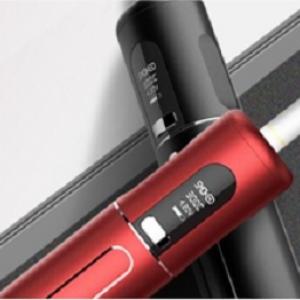Application of MOSFET In Switching power supply
MOSFET is widely used in switching power supply because of its low internal resistance and fast switching speed. The driver of MOSFET often chooses the appropriate circuit according to the parameters of power IC and MOSFET. The driving circuit of MOSFET for switching power supply is discussed below.When using MOSFET to design switching power supply, most people will consider the on resistance, maximum voltage and maximum current of MOSFET. But most of the time, only these factors are considered. Such a circuit may work normally, but it is not a good design. More specifically, MOSFET should also consider its own parasitic parameters. For a certain MOSFET, its driving circuit, peak current of driver pin output, rising rate and so on will affect the switching performance of MOSFET.
When the power IC and MOS transistor are selected, it is very important to choose the appropriate driver circuit to connect the power IC and MOS transistor.
A good MOSFET Driver circuit has the following requirements:
(1) When the switch is opened instantaneously, the driver circuit should be able to provide enough charging current to make the voltage between the source and the gate of MOSFET rise to the required value quickly, so as to ensure that the switch can be opened quickly without high frequency oscillation of rising edge.
(2) During switching on, the driving circuit can ensure that the voltage between the gate and source of MOSFET is stable and reliable.
(3) The switching off instantaneous drive circuit can provide a path with the lowest impedance as far as possible for the fast discharge of the capacitor voltage between the gate and source of MOSFET, so as to ensure that the switch can be switched off quickly.
(4) The structure of the driving circuit is simple and reliable, and the loss is small.
(5) Apply isolation as appropriate.
The following describes the MOSFET driver circuits commonly used in several module power supplies.
1. Power IC drives MOSFET directly
Power IC direct drive is the most commonly used driving mode and the simplest driving mode. When using this driving mode, we should pay attention to several parameters and the influence of these parameters. First, check the manual of power IC, its maximum driving peak current, because different chips have different driving capabilities. Second, understand the parasitic capacitance of MOSFET. IC driving ability, MOS parasitic capacitance, MOS switch speed and other factors all affect the selection of driving resistance, so RG can not be infinitely reduced.
2. When the power IC driving capacity is insufficient
If the parasitic capacitance of MOS transistor is relatively large and the driving ability of power IC is insufficient, the driving ability of power IC needs to be enhanced in the driving circuit. Totem pole circuit is often used to increase the driving ability of power IC. This driving circuit is used to improve the current supply ability and quickly complete the charging process for the grid input capacitance charge. This topology increases the time needed to turn on, but reduces the turn off time. The switch can turn on quickly and avoid the high frequency oscillation of the rising edge.
3. Acceleration of MOS turn off time by driver circuit
The instantaneous drive circuit can provide a path with the lowest impedance as far as possible for the fast discharge of the capacitor voltage between the gate and source of MOSFET, so as to ensure that the switch can be turned off quickly. In order to quickly discharge the capacitance voltage between gate and source, a resistor and a diode are usually connected in parallel on the driving resistor, which reduces the turn off time and the loss at the same time. Rg2 is to prevent excessive current when switching off, and burn off the power IC.
4. Acceleration of MOS turn off time by driver circuit
In order to meet the drive of high-end MOS transistor, transformer drive is often used, sometimes transformer drive is also used to meet the safety isolation. The purpose of R1 is to suppress the LC oscillation between the parasitic inductance on the PCB and C1. The purpose of C1 is to separate DC and prevent the core saturation through AC.





